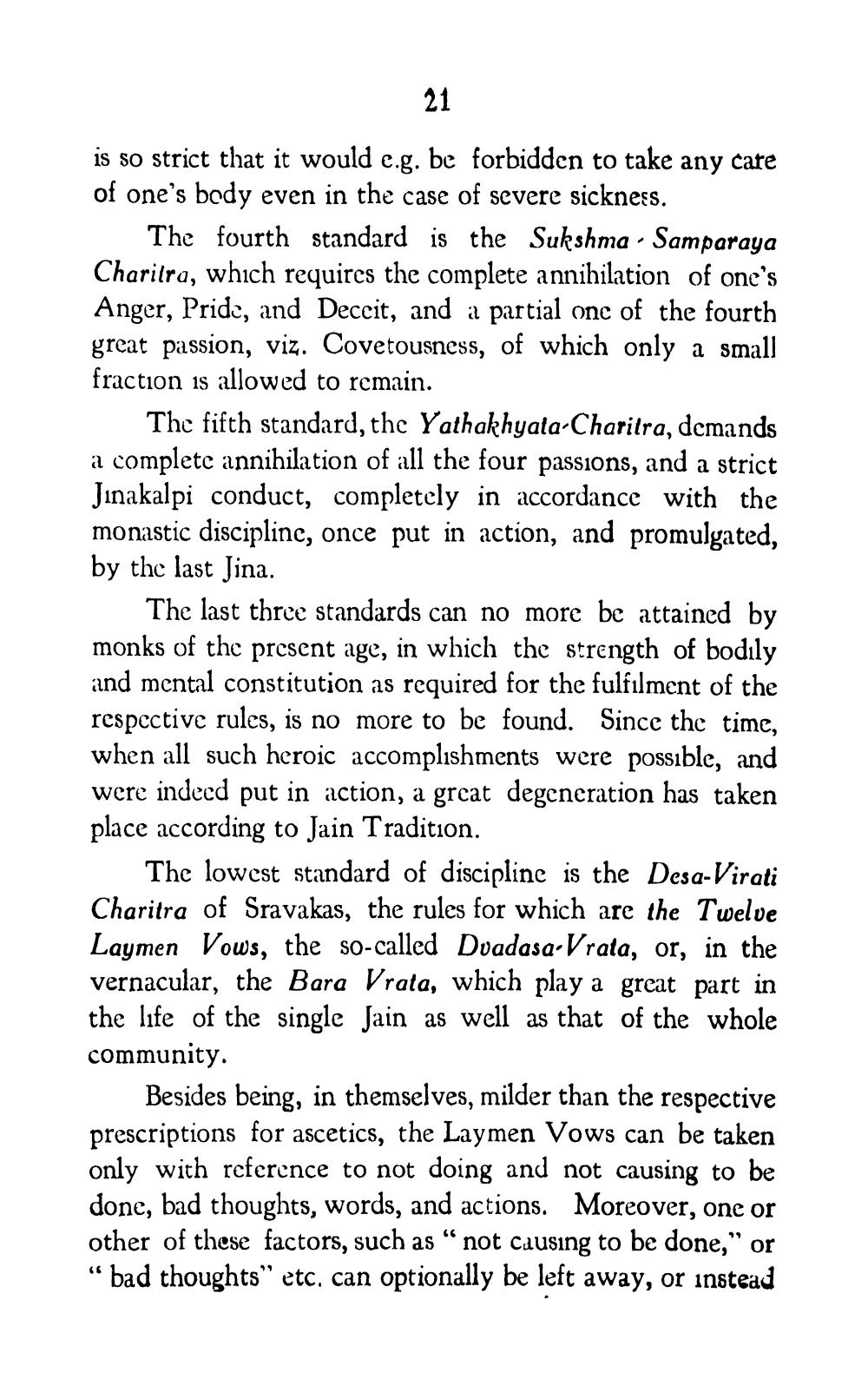________________
is so strict that it would e.g. be forbidden to take any care of one's body even in the case of severe sickness.
The fourth standard is the Sukshma - Samparaya Charilra, which requires the complete annihilation of one's Anger, Pride, and Deceit, and a partial one of the fourth great passion, viz. Covetousness, of which only a small fraction is allowed to remain.
The fifth standard, the Yathakhyata-Charitra, demands a complete annihilation of all the four passions, and a strict Jinakalpi conduct, completely in accordance with the monastic discipline, once put in action, and promulgated, by the last Jina.
The last three standards can no more be attained by monks of the present age, in which the strength of bodily and mental constitution as required for the fulfilment of the respective rules, is no more to be found. Since the time, when all such heroic accomplishments were possible, and were indeed put in action, a great degeneration has taken place according to Jain Tradition.
The lowest standard of discipline is the Desa-Virati Charitra of Sravakas, the rules for which are the Twelve Laymen Vows, the so-called Dvadasa-Vrata, or, in the vernacular, the Bara Vrata, which play a great part in the life of the single Jain as well as that of the whole community.
Besides being, in themselves, milder than the respective prescriptions for ascetics, the Laymen Vows can be taken only with reference to not doing and not causing to be done, bad thoughts, words, and actions. Moreover, one or other of these factors, such as “not causing to be done," or “bad thoughts” etc. can optionally be left away, or instead




